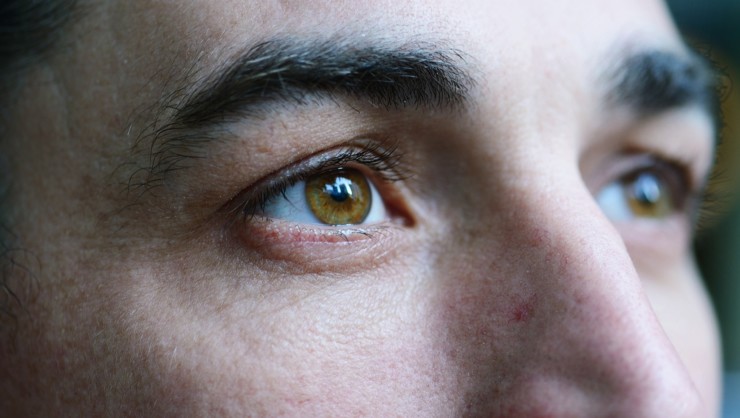A punctate cataract is a type of cataract that is characterized by the presence of numerous small opacities scattered throughout the lens. This condition can cause a decrease in vision and may lead to blindness if left untreated. In this blog post, we will discuss the symptoms and treatment options for punctate cataracts.
What Is A Punctate Cataract?
 Punctate cataracts are small, round opacities that appear in the center of the lens. They are usually caused by trauma or aging and can be treated with surgery. This condition is described as a “punctate” because the opacities appear as small dots on the lens. It is important to note that punctate cataracts are different from “point” or “flake” cataracts, which are smaller and more numerous.
Punctate cataracts are small, round opacities that appear in the center of the lens. They are usually caused by trauma or aging and can be treated with surgery. This condition is described as a “punctate” because the opacities appear as small dots on the lens. It is important to note that punctate cataracts are different from “point” or “flake” cataracts, which are smaller and more numerous.
For example, a person with a punctate cataract in their right eye may notice that they see halos around lights or have difficulty seeing at night. In some cases, the symptoms may be so mild that they are not noticed until an examination by an eye care professional.
This type of cataract is different as it is caused by the accumulation of protein in the lens. The proteins clump together and form small, round opacities on the lens. These opacities can be seen with the naked eye and appear as small dots on the lens.
If you feel like you may have a punctate cataract, it is important to see an eye care professional for an evaluation.
How To Identify Punctate Cataracts?
It might be difficult to immediately identify a punctate cataract because early on they often do not cause any symptoms or vision changes. However, as the cataract progresses, you might start noticing:
Blurry vision
This is one of the most common symptoms of cataracts, regardless of the type. If you have a punctate cataract, objects might appear hazy or less bright. For example, streetlights at night might look blurry.
Changes in colors
As a cataract matures, it can cause yellowing of your vision. You also might have trouble distinguishing between certain colors, such as blue and green.
Glare
Another symptom that is common with all types of cataracts is glare. This can make driving at night especially difficult. You might also notice that light sources seem to be too bright, and you may have trouble seeing in well-lit rooms.
Double vision
It is not uncommon for people with a punctate cataract to experience double vision. This is because the cataract can cause the light entering the eye to be scattered. This can make it difficult for the brain to process what it is seeing, resulting in two images being seen instead of one.
Eye pain
 Sometimes, people with a punctate cataract also experience pain in their eyes. This can be a sign that the cataract is getting worse and you should see your doctor as soon as possible.
Sometimes, people with a punctate cataract also experience pain in their eyes. This can be a sign that the cataract is getting worse and you should see your doctor as soon as possible.
So these are a few signs that you may have a punctate cataract. If you experience any of these, it’s important to see your doctor right away so they can diagnose and treat the problem. When you catch a punctate cataract early, you can avoid more serious problems down the road.
What Causes Punctate Cataracts?
There are a few different things that can cause punctate cataracts, including:
- Aging: It’s not uncommon for people to develop small, hard-to-notice cataracts as they age. This type of cataract is called a senile cataract.
- Trauma: An injury to your eye can cause a punctate cataract.
- Disease: Certain diseases, such as diabetes, can lead to the development of a punctate cataract.
- Exposure to toxins: Certain chemicals and toxins, such as smoking cigarettes, can increase your risk of developing a punctate cataract.
These causes are largely out of your control. And some risk factors might make you more likely to develop a punctate cataract, even if you don’t have any of the above causes. These include:
- Family history: If someone in your family has had a punctate cataract, you may be more likely to develop one, too.
- Eye color: People with light-colored eyes are more likely to develop cataracts than those with dark-colored eyes.
- Ultraviolet (UV) light exposure: Too much exposure to UV light can damage your eyes and lead to the development of a punctate cataract.
These are some of the most common causes and risk factors for punctate cataracts. If you have any of these, it’s important to be aware of the signs and symptoms so you can get treatment as soon as possible.
How To Diagnose It?
A diagnosis of punctate cataract can be made during a comprehensive eye examination. Your doctor will look for the characteristic changes in your lens and will ask about any symptoms you may be experiencing.
In some cases, special tests such as a slit lamp examination and ultrasound may be necessary to fully evaluate the cataract and rule out other eye conditions. It is believed that punctate cataracts are caused by a build-up of proteins in the lens.
Only a diagnosis by a qualified eye care professional can confirm whether you have a cataract and what type it is. Therefore if you are experiencing any changes in your vision, it is important to book an appointment with your doctor.
How Is It Treated?
There is no medical or surgical treatment for a punctate cataract. However, as the cataract progresses and begins to impact your vision, you may be advised to have surgery to remove the cloudy lens and replace it with an artificial one. This is a very common and safe procedure that can dramatically improve your vision.
For example, if you have a cataract in your left eye and it is causing problems with your vision, you may be advised to have surgery on that eye. But if the cataract in your right eye isn’t impacting your vision, you may not need to do anything about it.
Cataract surgery is usually an outpatient procedure, which means you can go home the same day. The surgery itself is usually quick and relatively painless. Recovery time is typically short, and most people see a significant improvement in their vision within a few days or weeks.
If you have a punctate cataract, it’s important to have regular eye exams so your eye doctor can monitor the cataract and advise you on the best course of action.
Can Punctate Cataracts Be Self-Managed?
 Punctate cataracts are usually treated surgically, but there are some cases where they can be self-managed. So there are some things you can do to help if you have this condition. First, it’s important to get an accurate diagnosis. Your optometrist or ophthalmologist can do this for you.
Punctate cataracts are usually treated surgically, but there are some cases where they can be self-managed. So there are some things you can do to help if you have this condition. First, it’s important to get an accurate diagnosis. Your optometrist or ophthalmologist can do this for you.
Once you know that you have a punctate cataract. Then, there are some things you can do to help manage the condition. These include:
- Wearing sunglasses or other protective eyewear when you are outdoors. This will help to protect your eyes from the sun’s ultraviolet (UV) rays.
- Avoiding smoking. Smoking is a risk factor for cataracts, so quitting smoking can help reduce your risk of developing this condition.
- Eating a healthy diet. Eating a diet that is rich in antioxidants, such as fruits and vegetables, can help to protect your eyes from damage.
- Exercising regularly. Exercise can help to improve your overall health, which can also help to reduce your risk of developing a punctate cataract.
- Lubricating your eyes. Using artificial tears or other eye drops can help to keep your eyes lubricated and healthy.
If you are self-managing your punctate cataract, it’s important to see your doctor regularly for checkups. This way, you can be sure that your condition is being properly managed and that no further treatment is needed. You should also see your doctor if you experience any new symptoms or if your symptoms worsen.
Conclusion
To conclude, punctate cataract is a type of cataract that affects the lens of the eye. It is characterized by the presence of tiny white dots on the lens. Treatment usually involves surgery to remove the affected lens and replace it with a new one. Early diagnosis and treatment are important to prevent vision loss.
Therefore you should not hesitate to consult your doctor if you experience any symptoms of punctate cataract. With prompt treatment, you can preserve your vision and enjoy a good quality of life.
For more guidance, please contact Eye Mantra. At EyeMantra we have a team of experienced eye surgeons, who will be happy to answer any questions on cataract surgery, cataract surgery cost, cataract lens cost for different cataract surgery types- Phacoemulsification, MICS & Femto Laser Cataract. Call us at +91-9711116605 or email at [email protected] for inquiries.


